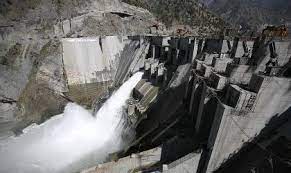Kathmandu: India and Nepal have agreed to take forward the Sapta Kosi high dam project through further studies, as senior officials of the two sides met here and comprehensively reviewed the bilateral water-sector cooperation, including the implementation of the Mahakali Treaty and cooperation in areas of flooding and inundation.
The 9th meeting of the Joint Committee on Water Resources (JCWR), co-chaired by Pankaj Kumar, Secretary, Department of Water Resources, River Development and Ganga Rejuvenation, Ministry of Jal Shakti, Government of India and Sagar Rai, Secretary, Ministry of Energy, Water Resources and Irrigation, was held in Kathmandu Friday.
This was preceded by the 7th meeting of the Joint Standing Technical Committee on Water Resources September 21-22.
The meeting was co-chaired by M K Srinivas, Chairman, Ganga Flood Control Commission, Patna and Shishir Koirala, Joint Secretary, Ministry of Energy, Water Resources and Irrigation, Government of Nepal in Kathmandu.
These meetings comprehensively reviewed the bilateral water-sector cooperation between India and Nepal, including the implementation of the Mahakali Treaty, the Sapta Kosi-Sun Kosi Project and cooperation in areas of flooding and inundation, the Indian Embassy said in a statement.
The Mahakali Treaty was signed in 1996 over the integrated development of the Mahakali River, including Sarada Barrage, Tanakpur Barrage and Pancheshwar project.
“The progress of various bilateral committees, including Joint Committee on Inundation and Flood Management (JCIFM) and Joint Committee on Kosi and Gandak Project (JCKGP), was also discussed,” it said.
It was agreed to take forward the Sapta Kosi high dam project through further studies which take into consideration the planned upstream projects, submergence area of the Project as well as other social, environmental and technical aspects, the statement said.
The Joint Team of Experts is expected to meet soon.
Sapta Kosi High Dam is a multipurpose project proposed to be constructed on the Saptakoshi River of Nepal. The project is primarily aimed to control floods in south-east Nepal and northern Bihar and to generate hydropower.
Recalling the India-Nepal Joint Vision Statement on Power Sector Cooperation issued during the visit of Prime Minister Sher Bahadur Deuba to India in April 2022, where the two Prime Ministers (Narendra Modi and Deuba) directed their concerned officials to expedite the bilateral discussions towards the early finalisation of the project’s DPR (Detailed Project Report), the JCWR extended the tenure of the Team of Experts (ToE) unto March 2023 for the finalisation of the DPR of Pancheshwar Multipurpose Project and agreed to hold the 4th ToE meeting at the earliest.
The Nepali side thanked India for the assistance extended to Nepal regarding irrigation, flood management, inundation control, river embankment works, etc.
The Indian side highlighted the unique relationship between the two countries and the importance of proper management and utilization of water resources for mutual benefit.
Water Resources Secretary Pankaj Kumar called on Minister for Energy, Water Resources and Irrigation, Pampha Bhusal after the meeting. Kumar is also expected to call on Prime Minister Deuba.






































